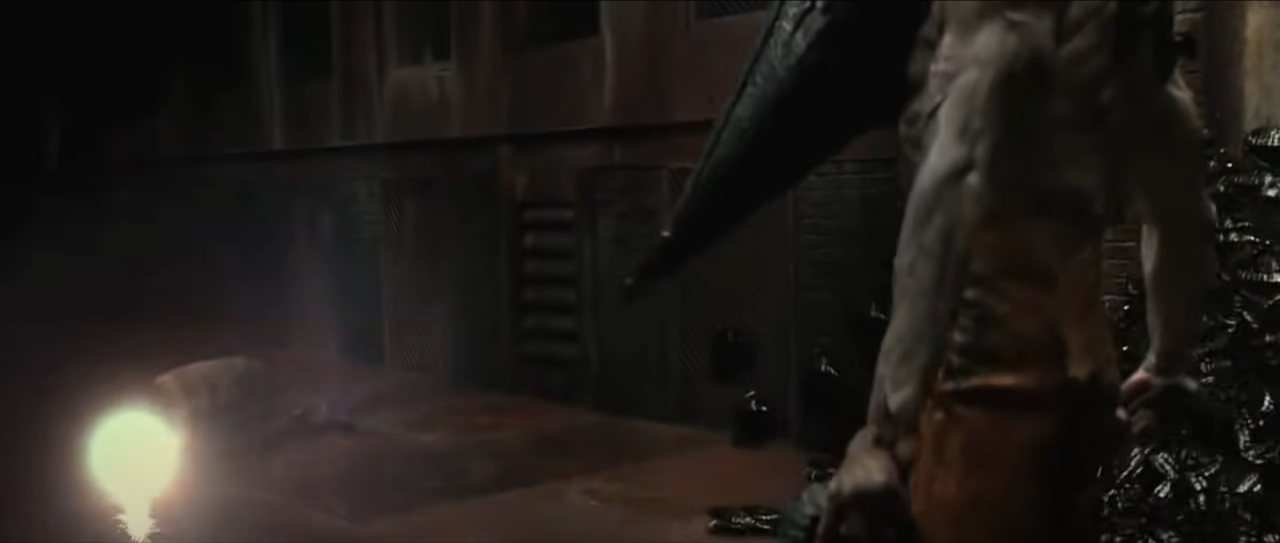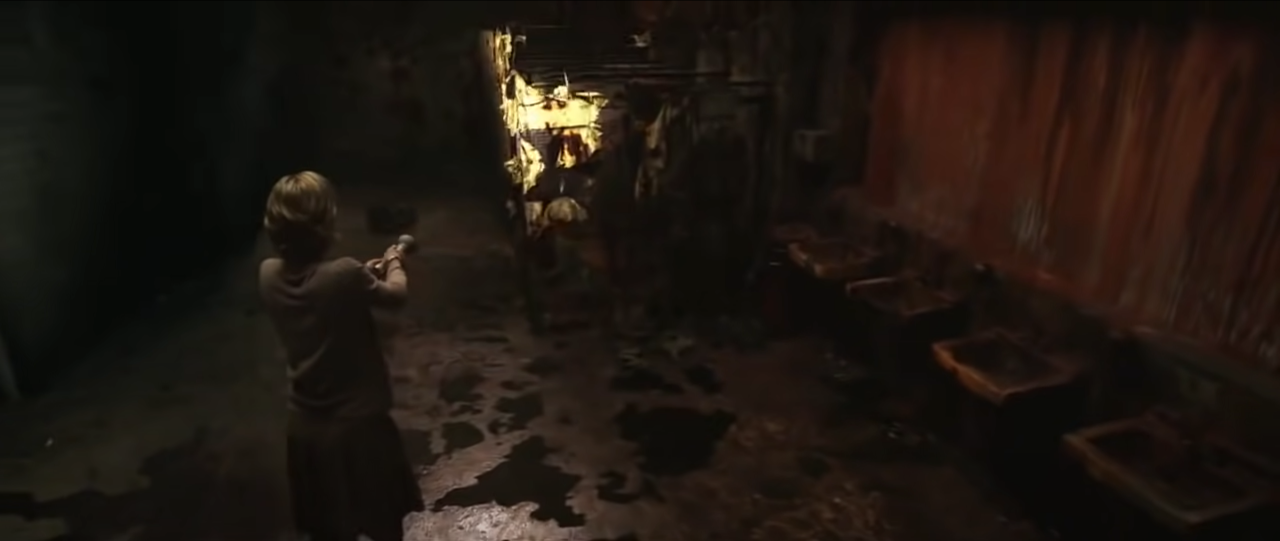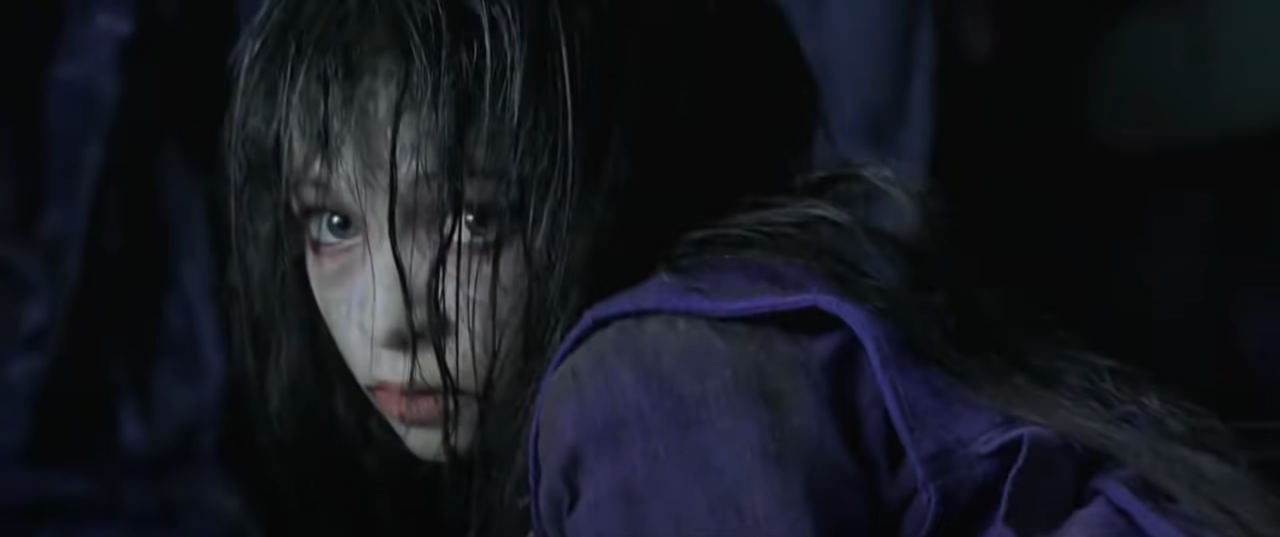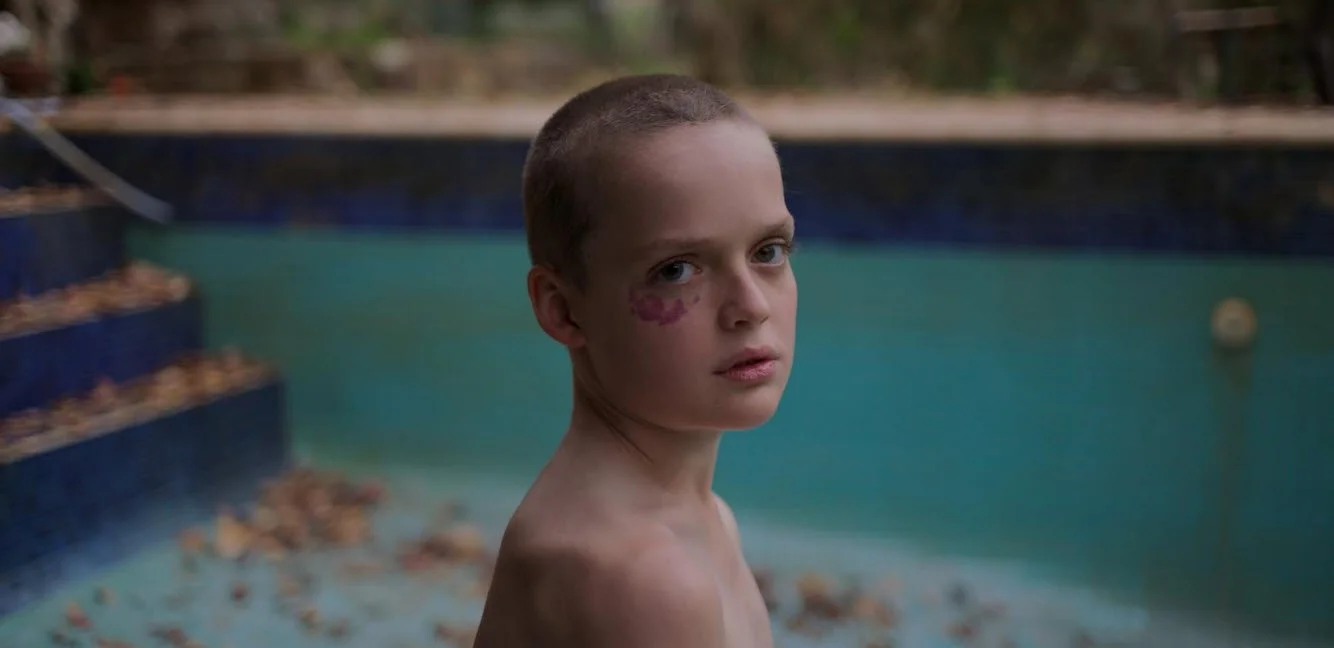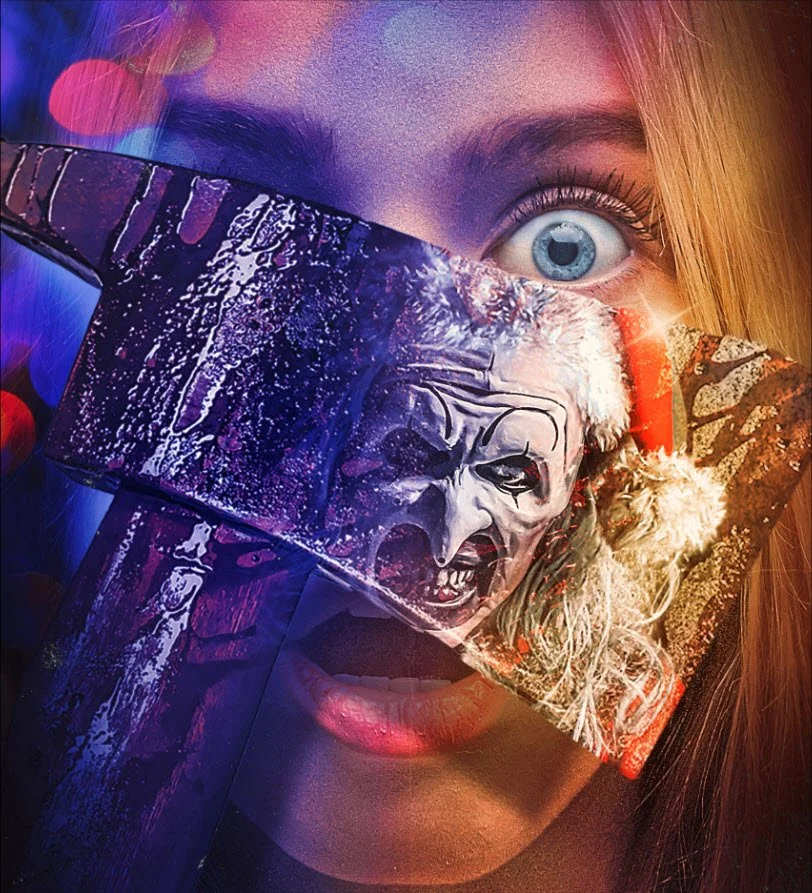Silent Hill (2006) | Fair or Foul
I had actually written this article well before I knew that Konami was jumping back into the video game industry with the announcements of three new Silent Hill game releases along with a movie rendition of Silent Hill 2. Sometimes life is funny about how coincidences can line up, I suppose.
If there was ever a movie that inspired me to create the format of a Fair or Foul review, it was Silent Hill. Part of the reason has to do with the fact that it was the first “Half-Good” episode of the long-dead Screened.com—an inspiration for this format. The other reason was, as someone who thoroughly enjoyed and respected the first 4 Silent Hill games, the movie does a fair amount right in representing the games on the silver screen. However, there are plenty of things to point out as significant detriments to the experience.
Image: Tristar Pictures
Plot
Rose (Radha Mitchell) and her husband Christopher (Sean Bean) have an adopted daughter named Sharon (Jodelle Ferland) who has been sleep-walking, experiencing nightmares, and screaming “Silent Hill!” in her sleep. Rose, desperate to find a solution to her child’s problems, steals her away for a road trip to find the town of the same name, unbeknownst to Christopher. Rose is hopeful to find the answers to her questions and discover what connection Sharon has with this place. However, after a stuck-up cop named Cybil (Laurie Holden) scares her off, Rose races down the deserted road only to crash her car and get knocked out. Waking up in the wreck, she discovers that Sharon is gone and wanders into Silent Hill, looking for her.
Image: Tristar Pictures
The plot itself is very similar to that of the original game. However, there are plenty of changes the movie enacts to help it make more sense. I was never the biggest fan of the original game’s plot as it was little more than a cult summoning a dark god and whatnot, so I will give the film credit for making certain characters of the original game more empathetic by changing the story around. While the reason why Sharon has a connection to Silent Hill is relatively similar, the villains and their motivations are quite a bit different. I won’t explain it here because, well, the movie does all that in a big exposition dump toward the end.
Fair: Creature Design
One of the strengths that the Silent Hill game series has always had was in the creature design. Sure, there were the typical enemies like bugs, dogs, and zombie-like creatures, but with Silent Hill 2, things got more abstract and creepy. Disregarding the fact that the creatures from that game were specific to Silent Hill 2’s story, some make an appearance here, and it still feels like it fits, just because of how well they’re portrayed. The red pyramid and the armless crawlers don’t belong in this movie, so they serve as nothing more than fan service. Yet, they’re so horrific and intimidating, they add to the atmosphere.
Image: Tristar Pictures
There’s even a new creature that was added to the film with a bit of a plot point behind it. While Rose is exploring the elementary school, she makes her way into the bathroom and discovers the remains of the janitor in a bathroom stall. He was tied up with barbed wire and twisted into an inhuman shape. After extracting the key she needed from his mouth, the distant siren starts blaring, and reality starts to shift into the darker universe. As the world darkens and the monsters start coming out, the lifeless body of the janitor starts to move once again. This moment is effectively creepy and manages to evoke the horrific nature of the games in a memorable way, thanks to the performance of the creature actor, Roberto Campanella.
The janitor, the red pyramid, and the nurses all look fantastic and add to the dooming atmosphere of the dark universe within the condemned town. When the siren goes off and the light starts to fade, you know that the place just got a whole lot scarier with monsters like them walking around. They give the red pyramid plenty of time to shine in this movie, but it’s the scene with the nurses that is my favorite. It’s just a short hallway, with walls and floors made of the same rusty metal we’ve seen throughout the movie, but the nurses themselves make it an incredibly tense moment. They twitch and walk towards the light Rose is holding and freeze when she turns it off, forcing her to quietly and cautiously navigate her way through the crowd of them without alerting any of them. The way they move and the noises they make are unsettling and perfectly represented in the movie.
Image: Tristar Pictures
Not every creature looks great. For example, the bugs with faces and the deformed children are overdosed with dated CGI. If you look at the behind-the-scenes material, you would see that the child monsters actually have masks and makeup that look good, but the filmmakers added a layer of CGI over the top of them to give them more movement and a different effect, I guess. If anything, it made the creatures look worse.
Foul: Pacing
When people think back on the pacing of Silent Hill, it’s difficult not to mention the subplot involving Christopher, Sean Bean’s character. As Rose and Sharon are trying to survive the perils of the town, Christopher is busy trying to catch up with them under the supervision of police officer Tom Gucci (Kim Coates). There are a few primary purposes of this sub-plot’s existence in the film that, while useful in some regards, tend to also bog down the pace.
The primary purpose is just to break up the tension and events of the movie. Christopher goes to a number of different places other than just Silent Hill (which also happens to look different when he’s there). I think the filmmakers felt that if all you saw was the grey fog or the doomy darkness of the town, the film’s overall color palette would suffer, and you would get either bored or exhausted looking at it. So, in some ways, Christopher’s appearance is welcome as a reprieve from the oppressive grey, while also having a character shout a name other than “Sharon.”
Image: Tristar Pictures
The downside to Christopher’s plot is that he doesn’t really do or accomplish anything. There are some portions of the film where he’s digging through files somewhere or interviewing someone to find out more details about Silent Hill and Sharon’s connection, but it’s made ultimately pointless by the exposition dump I already mentioned. Any mystery built up during Christopher’s sections is thrown out the window when everything is explained later.
The pacing is not all Sean Bean’s fault, though. There are plenty of sections with Rose that feel a bit drawn out. Part of the pacing problem with Rose may not be because the movie is going slowly, but that everyone was tired of her shouting “Sharon!” over and over. When a character is running around shouting the same name and not making much progress, the audience starts to feel it. By the end of the movie, I just sort of wished that it had ended about 15 minutes sooner, but we’ll get to that.
Fair: Set Design & Practical Effects
This movie nails the atmosphere of Silent Hill. The set design captures the look and feel of the town when you are in either reality. The obscuring fog in the streets is just as it was in most of the games. The rusted, industrial look of the town, when everything goes dark with metal and chain-link fences everywhere, provides the same level of dread and terror as the games intended, despite their dated graphics. The set design of each major location in the film is well done and faithful to the series. All of it is extremely recognizable to someone with a familiarity with the games.
Image: Tristar Pictures
The special effects also add to the atmosphere. Obviously, the CGI isn’t great as this is a 2000s movie, but the effect of the paint peeling off the walls as the town is pulled into the nightmare dimension still looks okay by today’s standards. The CGI, as I mentioned, on the creatures is where things looked the worst, but there were still plenty of monsters in the movie that were realized for the screen with good, old-fashioned practical effects and makeup. When someone has the misfortune of being grabbed by the red pyramid, what follows is a brutal death that is appropriately over the top without being a CGI mess, unlike other moments in the film.
Foul: Climax
The scene that follows the massive exposition dump of Silent Hill managed to convince me of one thing: your experience of the film would likely improve if you just turned it off right after Rose encounters the nurses. Leave it on a high note, I say. It’s not that the climax of the film doesn’t wrap things up. It has a few details about it that I don’t particularly like.
First is the torturous death of a character involving slow immolation. It’s a needless scene that is meant to make you despise the townspeople even more so than before. The exposition already established them as cruel cultists who were capable of doing terrible things to people they deemed sinful. The filmmakers, however, were determined to make the audience see them as monsters right at that moment. The climax that follows that moment indeed punishes them all in a very brutal fashion that is likely meant to be cathartic for the audience. That doesn’t really happen for me, however.
Image: Tristar Pictures
The retribution all these woefully misguided miscreants receive is delivered by long tendrils of barbed wire, controlled by a vengeful witch. It’s gory and brutal, and in one particular instance, extremely invasive. Despite the film’s efforts to make the audience dislike all these people, I just don’t find it satisfying to watch. Part of that is that it feels unnecessary and just acts as a final scene in which every sinner is quickly dispatched as a method of tying up loose ends. The other part is that I don’t think it looks good. It’s a lot of CGI garbage all over the place in a scene that feels better suited to Resident Evil’s overtly gory nature than to Silent Hill’s.
Fair: Faithful to Source Material
I could have condensed a majority of the other Fair points under this one. Of all the video game adaptations I have seen, I’m not sure there is one that was more faithful to its source material than Silent Hill. To be fair, I haven’t seen that many, but I could, nonetheless, tell that the people responsible for the way the movie looks and sounds were fans of the games themselves. I realized this when Rose first got to town. Several shots of her running through the streets looking for Sharon were recreated from the video game, which was very cinematic for its time. There’s a shot where the camera zooms through a broken stroller, taken straight out of the game. There’s another panning shot that is done from above Rose as she runs around the corner in the dark, which is almost an iconic moment from the opening sequences of the first game.
Image: Tristar Pictures
In addition to the visual tributes are the audio and soundtrack. I was very familiar with Akira Yamaoka’s soundtracks for the games, as I often listened to them when studying because they helped me focus. Many of his songs from the first three games are present in the movie, from the soft, dreamlike tunes to the intensely scary industrial tracks. They worked great for the games, and they work great for the film. If it ain’t broke, don’t fix it.
Foul: Exposition Dump
I’ve hinted at this moment multiple times throughout this review, and I’ve saved it for the end because I don’t think there is a bigger blemish this movie has than the exposition dump. Exposition is a way to get the point of a film’s plot across to an audience. Sometimes it can work, but more often it is a clunky method that can pull you out of the experience. In most instances in which it’s used—in a lengthy exchange or a short sequence of dialogue—it can often be replaced with more creative and meaningful methods of conveying the same information. It’s often an example of telling instead of showing. There are certainly exceptions to this, but when it’s a lengthy dump of information in the form of a character explaining everything, it’s difficult not to notice it for what it is.
Image: Tristar Pictures
It’s even more of a problem when the film is based on a franchise that is somewhat known for being rather vague and abstract with its information. Silent Hill games do explain enough for you to get the idea, but a lot is left on the table to allow players to come to their own conclusions. The film betrays this notion on a monumental level. As soon as Rose makes it past the nurses in my favorite scene, we’re then launched into my least-favorite scene in which an apparition explains the events that lead to the town’s downfall and why there is a dark universe that unleashes nightmarish creatures upon the inhabitants on a regular basis.
It’s not only an unnecessary explanation, but it’s detrimental to other pieces of the movie. It almost completely negates the point of Sean Bean’s character and anything he uncovers in his investigation. Had the movie just told us the same details of this information-dump scene through his legwork and Rose talking to people, it would have been a more natural way for the audience to understand what happened. It wouldn’t have helped Rose understand because Sean Bean was unable to convey this information to her. Perhaps the filmmakers chose to have her hear all this so she could return in the climax and bring about the townspeople’s destruction, but I’m not sure of the reason why they decided to do this. Regardless, every time I watch this movie, I come up with plenty of other methods they could have employed to have both the audience and characters understand what happened to Silent Hill without it being so clunky and lame.
Image: Tristar Pictures
Verdict: Fair
Color me biased, but I still like this movie, overall. I want to praise it for being a faithful adaptation of its source material that mostly manages to evoke some of the better qualities of the video games. The climax is a real bummer, and the movie gets bogged down by some scenes that are made unnecessary by the exposition dump that would be best removed. Yet, I still think it manages to be an effective horror movie with some memorable moments. Even if you don’t have a familiarity with the video games, I think Silent Hill is still able to stand on its own as a creepy horror movie.


